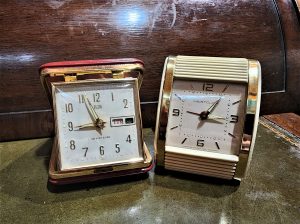Until the middle of my sophomore year of high school, I had a decent enough voice to sing in the choir.
I don’t recall much about the grade school years, except the plunk of an old piano and the scratchy record player in the music room. But in eighth grade and high school, being in the choir meant leaving class to sing funeral masses. A handful of us crossed the parking lot in our uniforms and slipped into the empty nave. We silently navigated the dark aisles, flanking the space down which we would later watch the coffin carried. I touched each pew, imagining the grieving spouse, the stoic siblings, the sobbing children.
Our voices swelled on queue, first in Latin, and then, in the enlightened years, in modern English. We stood at the front, near the organ. I remember most the In paradisum, sung in unison as the mourners solemnly followed the departed to his resting place after the Requiem concluded:
In paradisum deducant te Angeli:
in tuo adventu suscipiant te Martyres,
et perducant te in civitatem sanctam Jerusalem.
Chorus Angelorum te suscipiat,
et cum Lazaro quondam paupere æternam habeas requiem.
Later, we translated this lovely sentiment to our native language: “May the angels, welcome you into paradise. May the martyrs come to welcome you on your way. And with Lazarus who once was poor, may you have everlasting life.” The last note hung in the air as we girls stood with bowed heads, waiting for our release.
I have not practiced the Catholic religion for nearly five decades, except the occasional foray during the two years in which my son attended parochial school for want of a better neighborhood choice. My quarrels with religion and in particular Catholicism quell any glimmer of inclination to that end. I accept my differences with the concept of a set of rules that separate one group from the other with overriding condemnation. I’ve reconciled myself to the harms done in particular to me during my years in the grip of the Roman Catholics.
But the seasons still unfold with the rhythm of the ecclesiastical calendar. The moon spans the sky and gives us the gauge by which we chart the moveable feasts. Now Easter approaches, and I will sit in quietude while contemplating the many breakfasts in church garb; the lacy veil; the delicate bonnet; the patent leather shoes; and my brother’s shirts sprayed with starch and ironed by my mother’s deft hand.
In my youth, time had no meaning other than as a stepping stone from holiday to holiday. Here we got colored eggs in a basket hidden behind the tree; there we prayed to Mary, in anticipation of her virgin birth. Advent, Christmas, Lent, Easter, ordinary time. I had two good dresses, and as I grew, my mother’s Singer sewing machine provided the velvet collars and the smocked bodices. My grandmother bought my shoes, for a little crippled girl needs to be newly shod far more often than her sturdier siblings.
Over Christmas break in my second year in high school, my life took a desperate tail spin. Events conspired to halt my participation in the choir, not least among them a stunningly painful sore throat for which my mother could not afford to get care. I never sang again, except in the shower or in low tones to my son in his babyhood.
Once in a while, I would stand in my driveway watching the autumn leaves swirl in the wind. I would think about those mornings in the church. Once more, the music swelled. Once more, the people stood. Once more, a wooden box made its solemn way towards a place of eternal rest. Six girls, holding their bodies still, eyes turned forward, raised their voices as one to bid farewell to someone whom they had never met. Time stands still for no one. But with any kind of grace, your life’s sound track can include such moments as this.
It’s the sixth day of the one-hundred and twelfth month of My Year Without Complaining. Life continues.
Let It Be Forgotten
Let it be forgotten, as a flower is forgotten,
Forgotten as a fire that once was singing gold,
Let it be forgotten for ever and ever,
Time is a kind friend, he will make us old.
If anyone asks, say it was forgotten
Long and long ago,
As a flower, as a fire, as a hushed footfall
In a long forgotten snow.
